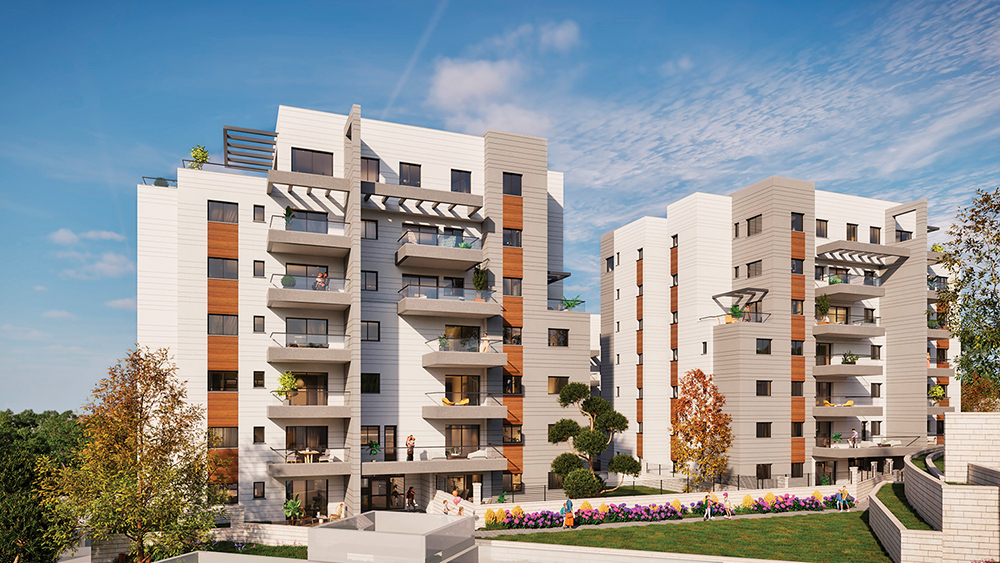
On July 29, the Knesset Finance Committee approved an amendment to the real estate regulations which changed the real estate benefits for new immigrants. The following is an explanation of the new amendment and an analysis of whether it is beneficial or detrimental for olim. (All numbers discussed below are approximate.)
The Finance Committee approved the following amendment: Olim will be exempt from paying a purchase tax on the first 2m NIS. On the next 4m NIS, they will pay a purchase tax of 0.5%. Above 6m NIS, they will pay a rate of 8%, and above 20m NIS, they will pay 10%. When buying on paper, an overseas buyer can take advantage of this discounted rate by making aliyah within three years of signing a contract of sale. If an oleh wants to buy a second property, they will have to pay an 8% purchase tax up to 6m NIS and then 10% above (the same rate that Israelis buying a second property and foreign buyers pay).
In comparison, Israeli residents buying a primary residence are exempt from purchase tax on the first 2m NIS. They then pay 3.5% for the next 370,000 NIS, 5% for the next portion up to 6m NIS, 8% above 6m until 20m NIS, and then 10% above.
At first glance, the new immigrant tax rate looks like a benefit for olim compared to the rate paid by Israelis. In fact, numerous government ministers lauded the new law as a means of embracing new immigrants and encouraging aliyah and — also as expected — some members of the media have protested that this benefit will result in the loss to the government of millions of shekels.
Are the government ministers and media correct? The reality is that this new amendment is a compromise that was created to close tax loopholes, which will hurt some new immigrants and benefit many others.
Upon scrutiny, one may notice that there are situations where the new law obligates olim to pay more taxes than under the previous law, and perhaps unsurprisingly, those are the circumstances where the tax office stands to gain the most money. To explain this phenomenon in real numbers, if one made aliyah and bought an extremely expensive property of 30m NIS, based on the old law they would have paid.5% on the first 2m NIS and 5% on the next 28m NIS, or a total of 1,410,000 NIS in purchase taxes. In contrast, the new amendment is 0% on the first 2m NIS, 0.5% on the next 4m NIS, 8% on the next 14m NIS and 10% on the final 10m NIS, or a total of 2,140,000 NIS. Thus, the new immigrant rate will hurt olim buying very expensive homes.
Furthermore, the new amendment limits new immigrants’ tax breaks to only one property. Under the old law, if an oleh bought only one residence, they were able to choose either the oleh tax rate (more favorable when buying expensive homes) or the Israeli primary residence rate (more favorable when buying moderately priced homes). In addition, if they bought two properties, they had tax breaks on both: the first property was calculated at the Israeli primary home buyers tax rate (detailed above) and the second property was calculated at the former oleh tax rate (provided that the immigrants would live in the home bought with the oleh tax benefit).
In summation, the new amendment has the following effect: For the majority of deals which range from 2m to 6m NIS, the new olim rates are beneficial to new immigrants. For very expensive properties, the new rate is detrimental to olim. Finally, for olim buying two properties, the new law — which limits tax breaks to one property — is disadvantageous.
The effective date of this new amendment is Aug. 15. People who immigrated prior to that date but did not yet buy homes will have the option to apply either the new tax rates or the previous rates, provided they buy a home within seven years of making aliyah.
Gad Dishi provided his astute initial analysis of this new amendment. To discuss details and tax implications, one can reach Gad at [email protected] or via WhatsApp at +972-52-393-9389.
Gedaliah Borvick is the founder of My Israel Home, a real estate agency focused on helping people from abroad buy and sell homes in Israel. To sign up for his monthly market updates, contact him at [email protected]. Please visit his blog at www.myisraelhome.com.









